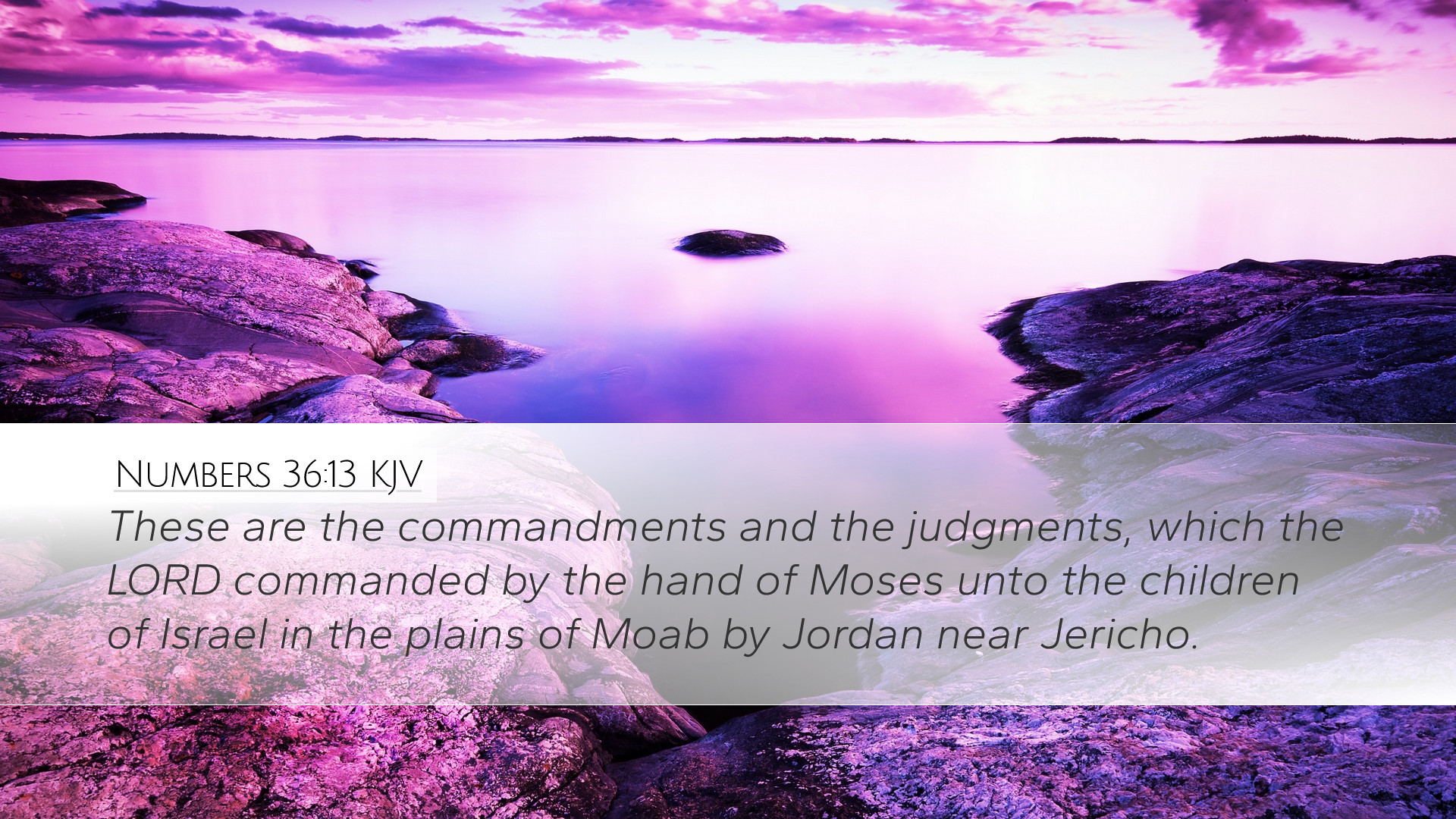Commentary on Numbers 36:13
Verse Text: "These are the commandments and the judgments, which the LORD commanded by the hand of Moses unto the children of Israel in the plains of Moab by Jordan near Jericho."
Introduction
This verse serves as a critical juncture in the book of Numbers, summarizing the divine instructions given to the Israelites. Here, we explore the implications of this verse through various public domain commentaries, focusing on its theological, historical, and practical significance.
The Commandments and Judgments
Matthew Henry emphasizes the authority of these commandments, noting that they are not mere suggestions but divinely ordained laws. He states that Moses acted as a mediator between God and Israel, illustrating the importance of obedience to divine statutes.
Albert Barnes comments on the use of "commandments" and "judgments," indicating that these terms encompass both moral imperatives and judicial regulations. He asserts that the cohesion of these laws serves to guide the community in their covenant relationship with God.
Adam Clarke elaborates on the nature of these judgments, suggesting that they not only provided legal structure for the Israelite community but also demonstrated God's righteousness and justice in human affairs.
The Context of the Commandments
The setting of this passage in the plains of Moab is significant. It signifies a period of transition for the Israelites, who stand on the brink of entering the Promised Land. Matthew Henry notes this transitional phase and discusses how the commandments served to prepare the Israelites for life in Canaan, emphasizing the need for societal order and holiness amidst impending challenges.
Albert Barnes reinforces this idea by suggesting that these laws would help ensure that the Israelites maintained their identity and covenant relationship with God once they settled in a new land, where they would encounter various cultural and religious influences.
The Role of Moses
Moses’ role as the mediator is pivotal in understanding this verse. Adam Clarke highlights Moses' unique position as both prophet and leader, revealing how his obedience to God's commands is a model for spiritual leadership. The mention of "by the hand of Moses" signifies that he was not only a transmitter of God's will but also an exemplar of faithfulness under divine instruction.
Matthew Henry adds that Moses' faithfulness was instrumental in the deliverance and guidance of the Israelites, making it clear that leaders play a critical role in articulating and exemplifying God's commandments.
The Theological Implications
This verse encapsulates a fundamental aspect of biblical theology: the relationship between God and His people, mediated through divine law. Albert Barnes reflects on how the commandments serve as a manifestation of God's will and His covenantal faithfulness, marking a divine blueprint for community living.
Matthew Henry points out that obedience to these commandments is an expression of faith. The Israelites' adherence signifies trust in God's covenant, while their failure to comply would reflect a breach in their relational integrity with Him.
The Practical Application
Pastors and theologians will find practical applications in this passage that resonate with contemporary issues of law, morality, and community governance. Adam Clarke suggests that a thorough understanding of divine commandments is essential for maintaining righteousness within communities.
Albert Barnes encourages the faithful to view these laws as timeless principles, suggesting they ought to be studied for their relevance in constructing modern ethical frameworks. The broader implications for societal morals are clear; divine law informs and shapes justice.
Conclusion
In summary, Numbers 36:13 serves as a poignant reminder of the importance of divine commandments and their implications for community, governance, and individual conduct. The insights from Matthew Henry, Albert Barnes, and Adam Clarke elucidate the multifaceted nature of this text, revealing its enduring significance for believers today.


